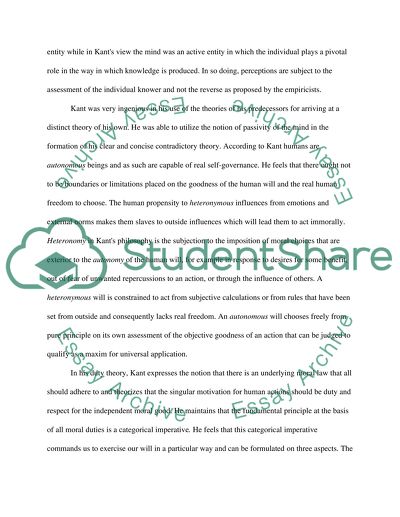Assess Kant's ethics of duty and freedom as a response to all previous Essay. Retrieved from https://studentshare.org/miscellaneous/1519133-assess-kants-ethics-of-duty-and-freedom-as-a-response-to-all-previous-ethical-theories
Assess Kant'S Ethics of Duty and Freedom As a Response to All Previous Essay. https://studentshare.org/miscellaneous/1519133-assess-kants-ethics-of-duty-and-freedom-as-a-response-to-all-previous-ethical-theories.


